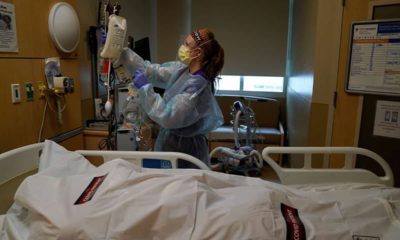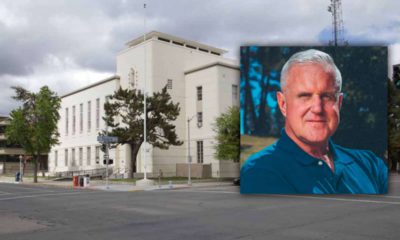Published
4 years agoon

Due to staffing challenges and an increase of COVID-19 patients, Community Medical Centers will stop all “non-urgent” surgeries and procedures at their facilities by January 1.
“The continual increase in inpatients and quarantined staff have forced us to make this decision based on available capacity and staffing,” says Dr. Thomas Utecht, the hospital system’s chief medical officer in a news release. “We continue to review and monitor this situation looking for opportunities to bring operating rooms back on line or to relocate services where possible.”
But Fresno County’s top health official is quick to point out the misconception about the word ‘elective.’
“You have to understand that just because something is elective, like for example, a tumor operation, that can’t go forever or else the patient’s going to have a really bad outcome,” said Interim Health Officer Dr. Rais Vohra.

Dr. Rais Vohra, Fresno County interim health officer
“You have to understand that just because something is elective, like for example, a tumor operation, that can’t go forever or else the patient’s going to have a really bad outcome.” – Dr. Rais Vohra
“Elective doesn’t mean frivolous,” says Dr. Anneli von Reinhart, who works in CRMC’s emergency department.. “There are lots of really important surgeries that fall under that category of elective.”
She gives an example that if you were to break your ankle in three places, that would technically fall under ‘elective.’
“We need to put you back together if you’re ever going to walk on it again. But we don’t necessarily need to do it today,” explains von Reinhart.
She says just because the surgeries aren’t considered emergencies, they still need to happen for the well-being of patients.

“Elective doesn’t mean frivolous.”–Dr. Anneli von Reinhart
While hospitals are asking patients to delay some surgeries due to space and staffing limitations, Vohra says they can’t be delayed forever.
“There’s some gray areas there,” says Vohra. “They’re (hospitals) are under a lot of pressure, especially from the state, to look at elective surgery schedules.”
Vohra says while the surgical colleagues he’s spoken with are very committed to good patient outcomes, they’re really stretched thin.
“They’re also taking trauma calls. They’re also doing acute care surgery. So they’re very much feeling the pinch like everyone else,” explains Vohra.
Kaweah Delta Medical Center in Visalia had already begun limiting elective surgeries in early December.
In a news release announcing the shift, the hospital said it would, “focus on medically necessary procedures.”
“Unfortunately, conditions have worsened locally, so we do need to move forward with changes to reduce the risk of somebody bringing the virus into our Medical Center inadvertently,” said Gary Herbst, Kaweah Delta’s CEO.
During the COVID-19 pandemic, Saint Agnes has continued to perform essential surgeries and procedures for patients for whom a delay could cause harm, according to their website.
“We are proceeding with a phased approach and continuing to follow CDC and state COVID-19 guidance regarding appropriate testing, workforce needs and supplies, which we are monitoring daily,” part of their post reads.


Study: First 10 Days After Leaving Hospital Pose Deadly Risks for COVID Patients


Bay Area Restaurants, Wineries File Lawsuit Over Outdoor Dining Ban


Madera Hospital, With ICU Inundated, Transfers Patients to Other Facilities


‘Shameful’: US Virus Deaths Top 400k as Trump Leaves Office


Bill McEwen: Five Steps to Heal America Under Biden


Trustee Slatic Calls for ‘Redshirt’ Year for High Schoolers When In-Person Classes Resume




